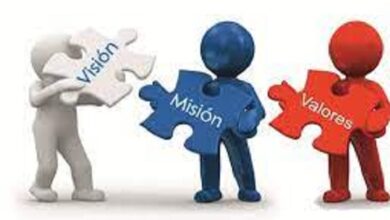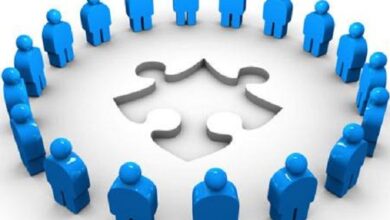Ethics and morals/Origin/importance/relationship/Examples
What Is Ethics And Morals?
Ethics and morals are two concepts that concern human behavior in society , but they are not synonymous, but complementary.
Both have a relationship with each other, but they do not have the same origin or the same meaning.
Let’s check out the concepts and differences between the two words.
Morality is a set of norms that serve to guide the way people act within a specific context.
Because of this, we are talking about a concept of a particular character that is based, above all, on habits and customs.
Ethics, on the other hand, basically works as a rationalization of morals.
In other words, it is a reflection on human actions .
The notions of right or wrong and fair and unfair are based on our ethical values.
Unlike morality, ethics is a concept of universal character and is based on theoretical principles.
Another way of differentiating ethics and morals is to consider what kind of question each one intends to answer.
While ethics seeks to find the definition of “what is good?” and “what is evil?”, morality asks “is this a good attitude?” or “Is this a bad attitude?”.
Despite their differences, ethics and morals also have at least one similarity.
Both help to delimit the values that will guide the individual’s way of acting, defining notions of nature and character, and finding the best way to live in society .
Origin Of The Concept Of Ethics And Morals
It is not only in their meanings that ethics and morals diverge, but in the origin of their concepts as well.
While the first comes from the Greek “ethos” and means “ way of being ”, the second comes from the Latin “mores” and means “ customs ”.
Furthermore, morality has always existed.
After all, since humanity began to live in groups, even in the first primitive villages, there was already a particular notion of right or wrong .
Ethics, on the other hand, apparently emerged with the philosopher Socrates during the Classical Period of Ancient Greece, around the 4th century BC.
What Is The Importance Of Ethics And Morals?
Ethics and morals are very important values for a society.
After all, they regulate coexistence and help shape the people we become.
Those who value acting in accordance with ethical and moral principles are more tolerant of differences, are respectful of others and of the laws, are fair and empathetic in their decision-making, and so on.
Although each individual has their own ethical and moral code, with their particularities that are due to personal experiences, upbringing, education and background, there must be some general guidelines.
It is these values that will guide people when they are faced with a difficult and unexpected situation.
In these cases, resorting to ethics and morals is the best way, even so that the choice does not cause regrets later.
What Is The Relationship Between Ethics And Morals?
Although they are concepts with different meanings, ethics and morals are closely linked , after all, ethics is nothing more than an in-depth reflection on morals.
For example, there are several attitudes that are immoral, but that ethically may not be so reprehensible.
Here, we will turn to those more traditional examples so that the understanding between the two values becomes clearer.
Stealing is an immoral act, right?
After all, it is the breaking of a rule established by society.
It is a crime under the Penal Code.
But what if that person stole a loaf of bread to feed a child who was starving?
Or did you steal a medicine to give to a family member who was in need?
Would you find this attitude ethically reprehensible?
Maybe yes, maybe not, depending on your values .
Socratic Ethics
Socrates was the first philosopher to focus on ethics.
Until then, no thinker had dedicated himself to studying the subject.
To understand Socratic ethics, one must first become familiar with the concept of “moral intellectualism”.
According to the Greek thinker, man is good by nature and has moral values.
Eventually, when he takes a bad attitude, it’s not because his nature is bad, but because of ignorance or ignorance.
That is, the individual does not make a mistake because he wants to, but because of carelessness or putting his private interests ahead of the collective.
Since that time, there was already the idea that ethics and morals helped to put society in order .
For Socrates and other ancient thinkers, ethics was linked to a purpose that, in the case of the Greeks, was eudaimonia , true happiness.
In this case, eudaimonia could only come from kindness, the search for correct conduct and virtuous behavior.
Virtue , therefore, is the main point of Socratic ethics .
But what would be virtuous behavior?
That of the perfect citizen, who is always concerned about the general well-being and puts reason ahead of desires.
The Kantian Ethics
About 20 centuries separate Socrates and Kant in history, and it would be natural that, after all this time, there were changes in the interpretation of the concept of ethics.
That is what happened.
For the most important philosopher of the Modern Era, ethics has nothing to do with religion, state or any kind of mysticism or authority.
The concept contradicted most of its predecessors.
Inspired by Enlightenment thoughts, Kant was guided by reason and it was for this influence that he developed the so-called Categorical Imperative , a kind of internal moral compass, which each individual has.
The Categorical Imperative has three basic foundations, which together form Kantian morals. Let’s go to these principles:
- Individual action as a universal law of nature: they are unquestionable attitudes that, in any judgment, prove to be correct
- Humanity is the end of all actions and never the means: ethics and morals are not utilitarian, and any attitude must privilege respect for people
- Human rationality: man, unlike other living beings, is capable of thinking and, therefore, a good deed must always be guided by duty.
Based mainly on this last foundation, the concept of Kantian ethics is born.
For the German thinker, duty needs to be understood as the purpose of the action itself and not thinking about other consequences, such as eudaimonia for Socrates, for example.
This ethics based on duty is called deontological ethics , because deon , in Greek, means duty.
Another interesting point of Kantian ethics is his perception of lying .
According to Kant and his idea of the Categorical Imperative, lying is not an ethical attitude in any way.
According to him, when a person makes a false statement , he is disrespecting society as a whole.
After all, you are using a subterfuge to have some kind of advantage, while depriving the other of the truth.
Phrases About Ethics
Check out some examples of sentences about ethics so that there are no more doubts about the difference in relation to morals:
- not harm others
- Don’t go over anyone
- Seek to be equitable and isonomic
- Respect differences.
Examples Of Morals
Now, see situations of morality so as not to confuse more with ethics:
- do not steal
- Not kill
- Wearing a burqa if you are a woman in Muslim countries
- Do not marry more than one person at the same time.
Where Do Moral And Ethical Principles Come From?
In addition to the etymology of words, which we have already discussed, the origin of values is another factor that differentiates moral and ethical principles.
Morality, for example, has an external standard , as it is provided by a country, a company, a culture or social group to which the person belongs.
There are even those cases where it is assigned to designate acceptable behavior.
On the other hand, ethical principles, although influenced by external factors, are personal interpretations , based on personal values.
No wonder a person can question some moral principle based on ethical claims.
Consistency And Flexibility
If we are to compare the two concepts in terms of consistency and flexibility, the result will be relative.
For example, if you evaluate that morality is part of a certain context and that it can stay that way for a hundred years, it is more consistent than ethics.
In this sense, morality becomes more flexible than ethics .
This is also true of ethics.
What is ethical for one person may not be ethical for another, making them very flexible.
However, a person of strong convictions , who does not let anything overcome his moral values, has a consistent ethics.
The Conception Of Ethics And Morals Over Time
The historical context and the different realities make the concepts of ethics and morals change over time .
For centuries, it was sought to establish different purposes for the pursuit of virtuous behavior.
For the Greeks, it was true happiness.
For the medieval, God and salvation.
For utilitarian’s, pleasure or the absence of suffering.
These changes are natural, as society evolves over time.
Behaviors that until recently were seen as immoral can now be morally acceptable, and vice versa.
How Do Ethics And Morals Apply In Today’s Society?
Ethics and morals have undergone several changes over the years.
In today’s society, they seem to have been left out by society.
Regardless of the historical period analyzed, these two values have always been associated with the common good and the collectivity.
Today, private interests have come to the fore.
Corruption scandals, waves of fake news , neglect of the environment are examples of attitudes in which ethics and morals need to be restored.
Ethical And Moral Citizenship
It is undeniable that citizenship has made several advances in recent centuries, represented by the conquest of civil, social and political rights.
However, it cannot be said that she has reached her apex either.
There is still a lot to evolve , and ethics and morals have to contribute to that.
After all, as it turned out, these two concepts say a lot about human behavior , and ensuring that everyone has the same opportunities says a lot about citizenship.
Nations that have strong ethical and moral values are more likely to guarantee full citizenship to all their inhabitants.
The Importance Of Ethics And Morals In Organizational Culture
Ethics and morals are present in the most diverse levels and situations, including companies and the job market .
Both concepts are of vital importance in the organizational culture of a business, serving as the basis for building a “ code of conduct ” to be followed by everyone.
This code consists of nothing more than a set of moral rules, established with the aim of developing ethical behavior among its employees.
Here, morals function as a convention, while ethics as an interpretation or deeper reflection.
What Do Ethics And Morals Represent In A Company’s Code Of Conduct?
In other words, morality is represented by the cold words present in the code, while ethics is the act of each employee to comply with the agreement, according to the principles defined by the company .
Although some ethical principles may vary from profession to profession and depending on the segment in question, some values are universal and must always be respected.
Points To Consider To Maintain Ethics And Morals In The Business Environment
There is no guarantee that following ethical and moral principles will lead the company to achieve the objectives set .
On the other hand, ignoring them is almost certain to fail.
An organization that has a code of conduct and follows it to the letter, knows which values matter the most and, thus, is able to fulfill its mission more easily.
It is worth remembering that the rules need to be followed by everyone, without restrictions.
Leadership , in particular, must be impeccable to serve as an example for others.
In addition, attitudes that do not meet the requirements of the code of conduct must be treated with the relevance they deserve, and all employees must be encouraged to report inappropriate behavior .
Books On Ethics And Morals
To learn more about ethics and morals in different contexts and situations, here is a list of books that might interest you:
- Ethics and Morals: The Search for Foundations, by Leonardo Boff
- Beyond Good and Evil, by Friedrich Nietzsche
- Ethics in Business Management, by Francisco Gomes de Matos
- Compliance, Ethics, Social and Business Responsibility, by Luis Roberto Antonik
- Ethics, Social Responsibility and Corporate Governance, by Cândido Ferreira da Silva Filho, Gideon Carvalho de Benedicto and José Francisco Calil
- The Ethical Leader: Why Doing Right Can Be the Key to Competitive Advantage, by Morgen Witzel.




